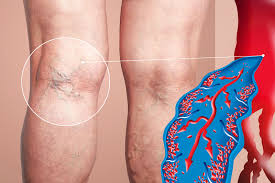
Traumatic brain injuries (TBIs) can have widespread effects, disrupting not just cognitive and motor functions but visual processes as well. Vision is a complex collaboration between the eyes and the brain, and when this delicate system experiences trauma, the repercussions can significantly alter someone’s vision. Here’s how neuro-optometric methods target vision-related dysfunction after a TBI:
What Is Neuro-Optometrics?
Neuro-optometrics focuses on understanding and treating the interplay between visual processing and the neurological system. This field extends beyond routine optometry, addressing conditions stemming from brain injuries, including traumatic brain injuries. By assessing how visual signals integrate with the brain and the motor system, neuro-optometric practitioners can identify and manage visual dysfunctions that interfere with daily activities and overall quality of life. Through advanced evaluation and tailored treatments, neuro-optometrics aims to restore balance and coordination across visual and neurological systems.
How Can a TBI Impact Vision?
Following a concussion or other TBI-related events, people may experience vision challenges. TBIs often impair brain regions responsible for processing visual information. Axonal injuries or damage to visual pathways can disrupt the communication network between the eyes and the brain. Some symptoms of a TBI include:
- Blurred or Double Vision
- Light Sensitivity
- Spatial Awareness Struggles
- Difficulty Concentrating
Post-Trauma Vision Syndrome (PTVS)
One of the most common conditions associated with TBI is post-trauma vision syndrome (PTVS). This disorder can disrupt focus, depth perception, and eye movements, resulting in issues like blurred vision and eye strain. Individuals with PTVS may also experience difficulties reading, balancing, or performing everyday visual tasks.
These disruptions result from the brain’s inability to process visual inputs cohesively after trauma. Some symptoms specific to PTVS are:
- Asthenopia
- Hallucinations
- Headaches
Visual Midline Shift Syndrome (VMSS)
Another frequent outcome of a TBI is visual midline shift syndrome (VMSS). This condition causes a shift in the visual midline, altering how individuals perceive their position in space. Such shifts might lead to difficulties in coordination, posture, and movement. Individuals with VMSS may lean unnecessarily to one side or struggle to maintain physical stability. This syndrome highlights the profound impact trauma can have on both vision and motor functions.
What Treatments Are There?
While the vision challenges following a TBI may be challenging, advancements in neuro-optometric care offer effective paths to recovery. Through thorough evaluations and specialized therapies, patients can reconnect their visual and neurological systems, resulting in improved function. A neuro-visual rehabilitation evaluation is a fundamental first step for those experiencing visual dysfunction after a TBI.
Neuro-Visual Rehabilitation Evaluations
Unlike traditional eye exams, this in-depth assessment evaluates the interaction between the ambient visual process and the neuro-motor system. The practitioner takes a comprehensive approach, starting with vision tests that analyze coordination, focus, and spatial awareness. This evaluation helps to identify underlying issues, such as PTVS or VMSS, enabling the creation of a tailored treatment strategy.
Neuro-Visual Rehabilitation Therapies
Once identified, visual dysfunctions are treated with precise neuro-visual rehabilitation therapies. These therapies aim to restore balance between the visual and motor systems while enhancing spatial awareness and coordination. Key treatments may include the use of prisms, which help realign visual processing, and neuro-visual postural therapy (NVPT), aimed at correcting posture and movement affected by vision issues. Other interventions may involve targeted exercises or assistive devices to address specific challenges, facilitating tangible improvements in both vision and daily life activities.
Learn More About Neuro-Optometric Treatments
Recovering from a TBI is a complex process, especially when vision is impacted. Neuro-optometric care provides specialized solutions tailored to address visual dysfunction and facilitate recovery. Contact a professional today. With the guidance of experts, you can address visual challenges and experience progress.






